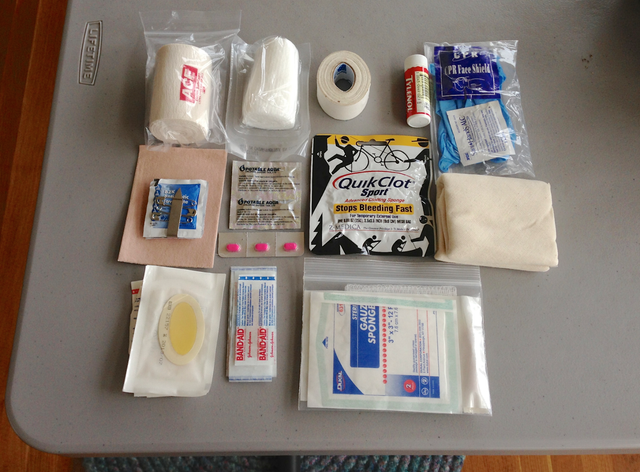In mid-February, I spent two weeks in Central Oregon taking a Wilderness First Responder (WFR) course offered by NOLS Wilderness Medicine Institute and sponsored by the Oregon Museum of Science and Industry (OMSI). Both my Oregon EMT license and National Registry EMT certification were up for renewal this year, so taking the course was an efficient way to get my continuing education credits out of the way as well as renewing the "wilderness" component of my Wilderness EMT. Not only that, but I got to spend two weeks out in the Oregon desert; clear, star-filed skies at night and beautiful views during my lunchtime hikes.
When I returned to Port Townsend, East Jefferson Fire-Rescue allowed me to join their current batch of EMTs in training for five weeks of lecture and skill practicals. Got to do everything from vehicle extrication at one of the local firehouses to relearning neonatal care (not so common in the backcountry, oddly). This training insured all of my urban EMT skills were up to snuff. March and April were a busy couple months as I was working full time and training/planning for the PCT too. But, all of the required paperwork and signatures were sent off a few weeks ago so I am not yet recertified but I am certifiable, again.
With all of this training, knowledge, and experience building a lightweight first aid kit for a 2,600+ mile hike is a Herculean battle between two opposing desires. How much weight is too much vs. what items are worth the weight given my skills. When I led outdoor trips, most organization-provided first aid kits that were around 5 pounds and were one lawyer recommendation away from containing an AED. On my own backpacking trips I usually have a first aid kit between a pound to a pound and a half that is meant to prevent an uncomfortable or problematic situation from becoming a really bad day.
Amelia commented when she saw my completed kit that I built this PCT first aid kit not for me but for everyone else on the trail, despite the fact that I do not particularly like most people and head into the wilderness to escape civilization. I am funny like that.
Since the PCT crosses many towns, roads, and campsites, there will be both urban and wilderness medical situations possible. The balance I tried to strike was between light and capable of handling the most likely scenarios, while not regretting what I could have carried but did not for weight reasons. Tough. And like all things, I will likely adjust it on the way.
The kit includes the following: Ace bandage, gauze roll, athletic tape, NSAID pain relievers, gloves + CPR face shield, moleskin, tweezers, pins, Benadryl, backup water purification tablets, QuikClot, triangle bandage, SecondSkin blister pads, bandaids, gauze pads. All for only 9.5 oz total, which is about the weight of 1.2 cups of water.

The majority of the what I have treated in the backcountry are blisters and musculoskeletal injuries There have been a few decent bleeds and cuts but nothing that a bit of gauze and tape cannot handle. So, I went with a half dozen blister pads, enough gauze to handle a few decent bleeds, and ace bandage + triangle bandage. Sure I could improvise something for the ace bandage or triangle bandage, but I have yet to meet a trained professional who would not greatly prefer to have it provided. Tape, pain relievers, tweezers, pins, and allergy meds are all lightweight, handy, and are pretty hard to improvise. Ever tried to synthesize aspirin in the wilderness? Not easy, my friends.
The gloves, CPR face shield and QuikClot are meant more for urban or semi-urban problems. In the back of my mind, I can just imagine hitching into town and seeing a car accident or having a respiratory or cardiac arrest at a campground. For their weight, they could realistically mean the difference between life and death. They could be the first things to go too as those scenarios seem the least likely.
For the weight of just over a cup of water, I feel pretty good about this kit. Anything else I might conceivably want, I can improvise (healing power of laughter!), find on the way (Tecnu), or it would be far heavier than I would be willing to carry (oxygen tank).